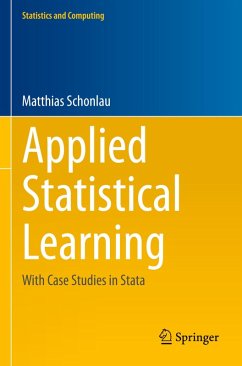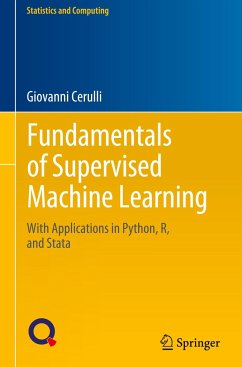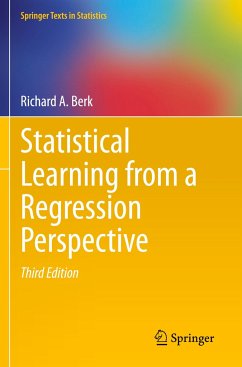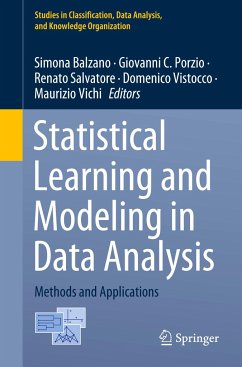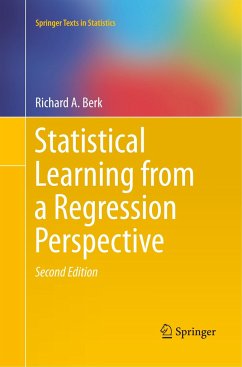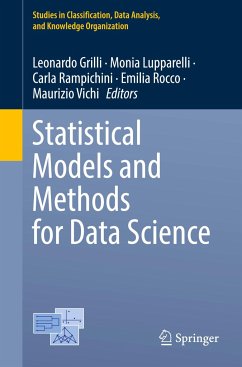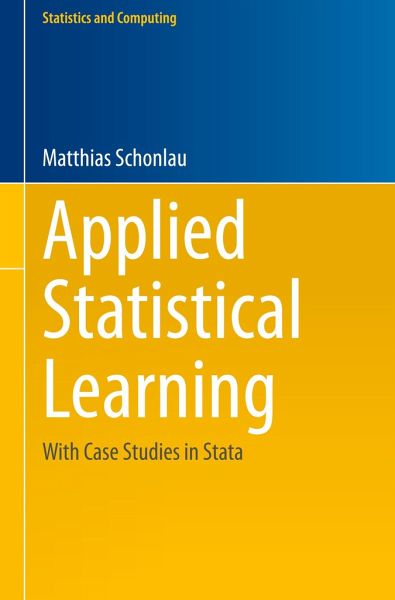
Applied Statistical Learning
With Case Studies in Stata
Versandkostenfrei!
Versandfertig in 6-10 Tagen
91,99 €
inkl. MwSt.
Weitere Ausgaben:

PAYBACK Punkte
46 °P sammeln!
This textbook provides an accessible overview of statistical learning methods and techniques, and includes case studies using the statistical software Stata. After introductory material on statistical learning concepts and practical aspects, each further chapter is devoted to a statistical learning algorithm or a group of related techniques. In particular, the book presents logistic regression, regularized linear models such as the Lasso, nearest neighbors, the Naive Bayes classifier, classification trees, random forests, boosting, support vector machines, feature engineering, neural networks,...
This textbook provides an accessible overview of statistical learning methods and techniques, and includes case studies using the statistical software Stata. After introductory material on statistical learning concepts and practical aspects, each further chapter is devoted to a statistical learning algorithm or a group of related techniques. In particular, the book presents logistic regression, regularized linear models such as the Lasso, nearest neighbors, the Naive Bayes classifier, classification trees, random forests, boosting, support vector machines, feature engineering, neural networks, and stacking. It also explains how to construct n-gram variables from text data. Examples, conceptual exercises and exercises using software are featured throughout, together with case studies in Stata, mostly from the social sciences; true to the book's goal to facilitate the use of modern methods of data science in the field. Although mainly intended for upper undergraduate and graduatestudents in the social sciences, given its applied nature, the book will equally appeal to readers from other disciplines, including the health sciences, statistics, engineering and computer science.





